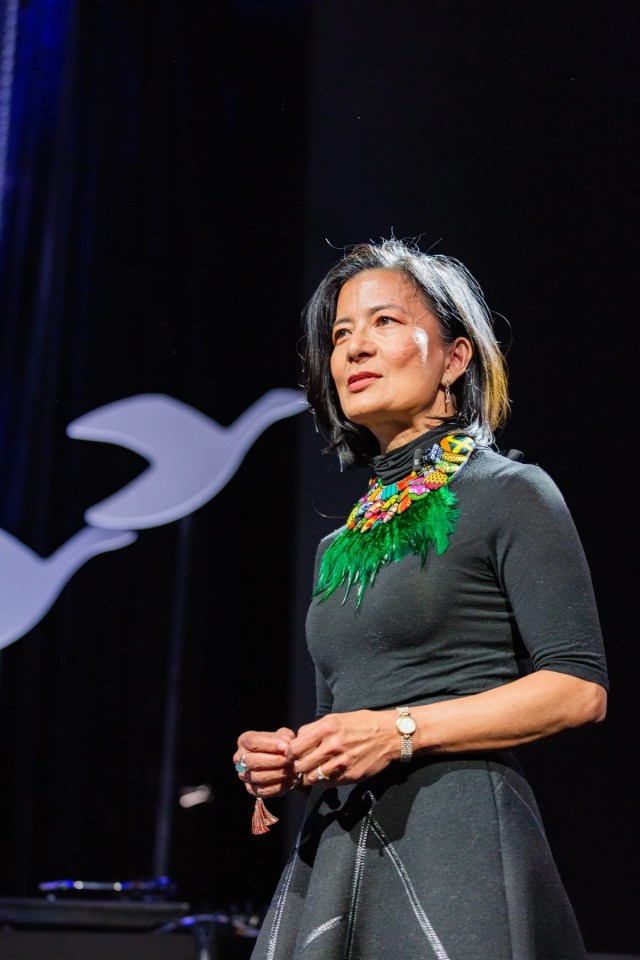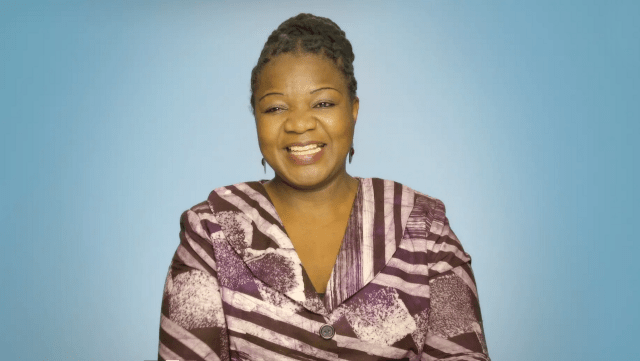
TIME100 Philanthropy list, showcases 100 individuals whose charitable work is transforming communities.photo wikipedia
Since its inception in 1999, TIME magazine’s TIME100 list has annually recognized the 100 most influential individuals shaping the world across various sectors, including politics, entertainment, science, and philanthropy.
In April 2025, TIME introduced its inaugural TIME100 Philanthropy list, a global showcase of 100 individuals whose charitable work is transforming communities, advancing justice, and innovating solutions to some of the world’s most pressing challenges.
The honorees come from diverse sectors, backgrounds, and continents.
They include corporate leaders, grassroots organizers, activists, and social entrepreneurs, all united by their commitment to sustainable, ethical giving.
Selection criteria for the list emphasize transparent, accountable, and strategic philanthropy that prioritizes local voices and long-term change.
Among these global changemakers, five with deep African roots or commitments stand out.
Their work spans health, education, media, and economic empowerment, reflecting a rising trend of African-led philanthropy that addresses the continent’s unique challenges and opportunities.

Aliko Dangote: Private Sector Philanthropy Driving African Development
Nigeria’s Aliko Dangote is Africa’s richest man and a leading figure in philanthropic investment.
His charitable work is channeled through the Aliko Dangote Foundation (ADF), established in 1994 and endowed with $1.25 billion in 2013, making it one of the largest private foundations on the continent.
The ADF focuses on health, education, nutrition, and economic empowerment in Nigeria and the broader region.
The foundation has played a key role in Nigeria’s polio eradication efforts, partnering with the government and the Bill & Melinda Gates Foundation.
It supports immunization programs and maternal and child health services. During the COVID-19 pandemic, Dangote contributed over N11 billion (approximately $26 million) for testing, treatment, and isolation centers across Nigeria.
Beyond health, the foundation provides micro-grants and business support to over one million women traders, aiming to foster economic independence and reduce poverty.
Dangote also supports agriculture initiatives and education scholarships targeted at vulnerable youth.
His philanthropic leadership earned him Nigeria’s Grand Commander of the Order of the Niger (GCON) in 2011 a prestigious national award recognizing his contributions to development and philanthropy.
In 2021, he received a Lifetime Achievement Award from the Nigeria Employers Consultative Association (NECA) for his impactful philanthropy (Dangote Foundation).
Dangote’s approach combines private sector efficiency with African priorities, seeking to translate industrial success into a tangible public good.

Tsitsi & Strive Masiyiwa: Investing in Education and Health for Africa’s Future
Zimbabwean entrepreneurs Tsitsi and Strive Masiyiwa co-founded the Higherlife Foundation in 1996 to support education for orphaned and vulnerable children.
Over nearly three decades, Higherlife has expanded to support over 250,000 students across Zimbabwe, Burundi, Lesotho, Malawi, and South Africa.
Higherlife offers scholarships, leadership development, and mentorship programs, notably the Joshua Nkomo Scholarship and the Capernaum Trust, both aimed at academically gifted yet economically disadvantaged youth.
The foundation also invests in rural transformation and health programs.
In 2021, they launched Delta Philanthropies, formalizing their giving strategy to focus on African-led systems change, innovation, and sustainable development.
Their philanthropic philosophy centers on empowering Africa’s youth as agents of change.
Strive Masiyiwa, founder of the telecommunications group Econet, has been recognized internationally for his philanthropy.
He received the W.E.B. Du Bois Medal from Harvard University in 2024, honoring his contributions to education, health, and economic development across Africa (Econet).
During the COVID-19 pandemic, the Masiyiwas donated funds and resources to help contain the virus, including ventilators and testing kits.
They are outspoken advocates for transparency and accountability in philanthropy and public spending, promoting ethical leadership across Africa.

Reeta Roy: Championing African Youth at the Mastercard Foundation
Reeta Roy has led the Mastercard Foundation since 2008 as President and CEO.
The foundation manages an endowment exceeding $40 billion, making it one of the largest in the world focused on African development.
Under Roy’s leadership, the foundation launched Young Africa Works, an ambitious initiative to enable 30 million young Africans, especially women, to access dignified employment by 2030.
This strategy includes programs in agriculture, technology, education, and financial inclusion, delivered in partnership with African universities, NGOs, and governments.
The foundation works with institutions like the African Leadership Academy and BRAC to provide entrepreneurial training, digital skills, and access to credit.
Roy also oversaw the Mastercard Foundation’s COVID-19 Recovery and Resilience Program, which disbursed over $300 million to small businesses, health workers, and remote learning initiatives.
Roy champions “proximate philanthropy”—prioritizing local leadership and solutions designed by and for African communities.
Reflecting this commitment, the foundation relocated its headquarters to Kigali, Rwanda, in 2020.
Her approach signals a shift from traditional top-down aid toward participatory philanthropy, amplifying African expertise (Mastercard Foundation).

Angeline Murimirwa: Transforming Girls’ Education with CAMFED
Angeline Murimirwa’s work with the Campaign for Female Education (CAMFED) began as a beneficiary, and today she leads as Chief Executive Officer.
CAMFED operates in Ghana, Malawi, Tanzania, Zambia, and Zimbabwe, supporting over 7.8 million children, mostly girls, to access quality education.
CAMFED’s innovative approach involves training young women alumni to become teachers, mentors, and community leaders, creating a self-sustaining cycle of support.
Murimirwa played a key role in designing the Learner Guide program, which equips young women to provide mentorship, life skills, and academic coaching to vulnerable girls, reducing dropout rates and fostering leadership.
Her advocacy has reached forums including the United Nations and the World Bank.
In 2020, she received the Diamond Ball Global Citizen Award from Rihanna’s Clara Lionel Foundation, recognizing her transformative impact on girls’ education globally (CAMFED).
Murimirwa’s leadership demonstrates the power of community-driven solutions, where those closest to the challenges lead the change.

Mo Abudu: Elevating African Stories Through Media and Philanthropy
Nigerian media entrepreneur Mo Abudu is the founder and CEO of EbonyLife Media, a company dedicated to telling African stories by Africans.
In 2023, she launched the Afro Film Alliance, a $50 million fund with Kuramo Capital to finance African filmmakers, addressing the long-standing gap in creative funding.
The fund supports projects centered on African history, identity, and contemporary issues, ensuring creative ownership stays with Africans.
EbonyLife’s partnerships with Netflix, Sony Pictures Television, and the BBC have brought acclaimed series like Castle & Castle and films such as Elesin Oba to global audiences.
Abudu also runs the EbonyLife Creative Academy, training hundreds of screenwriters, directors, and producers in Nigeria to build a robust creative economy.
Her philanthropic vision views storytelling as cultural philanthropy, aiming to reshape global narratives about Africa and empower local talent.
TIME100 recognized her for using media capital to democratize representation and expand opportunities for African creatives (EbonyLife Media).
The Broader Context of African Philanthropy
Africa’s philanthropic landscape is rapidly evolving. Historically reliant on external aid, the continent is witnessing a surge in homegrown philanthropy driven by private individuals, corporations, and diaspora communities.
These actors emphasize sustainable development, local ownership, and innovation to tackle entrenched problems like education gaps, health crises, and economic inequality.
Institutions like the African Philanthropy Network and TrustAfrica highlight the importance of indigenous solutions and transparency.
The leaders recognized by TIME100 exemplify this shift, using their platforms not just to donate funds but to invest in systemic change and community empowerment.
These individuals embody a new generation of leaders who combine strategic vision, local insight, and sustained commitment.
Their diverse approaches highlight a multifaceted movement toward African-led development that is accountable, innovative, and rooted in the continent’s realities.
As Africa continues to chart its philanthropic path, these changemakers serve as models of how giving can create lasting, inclusive impact.



